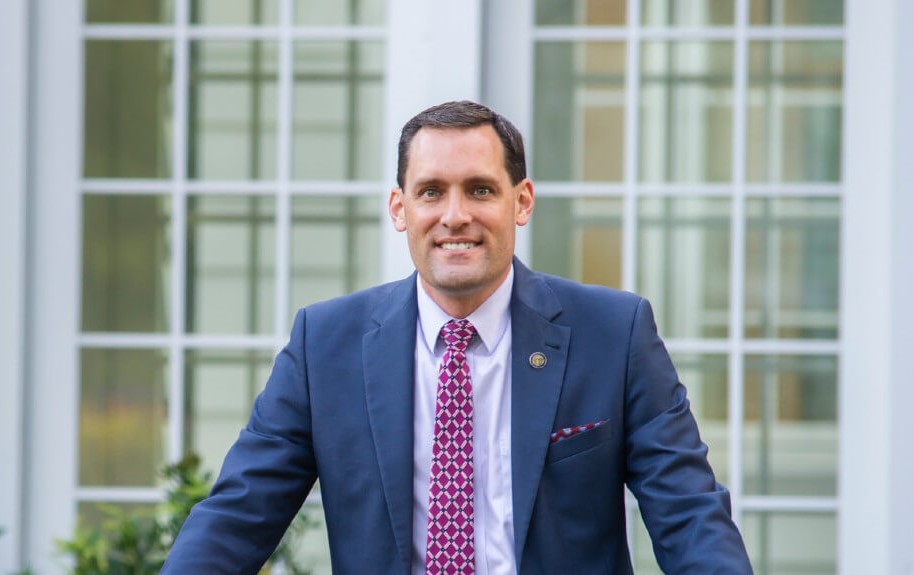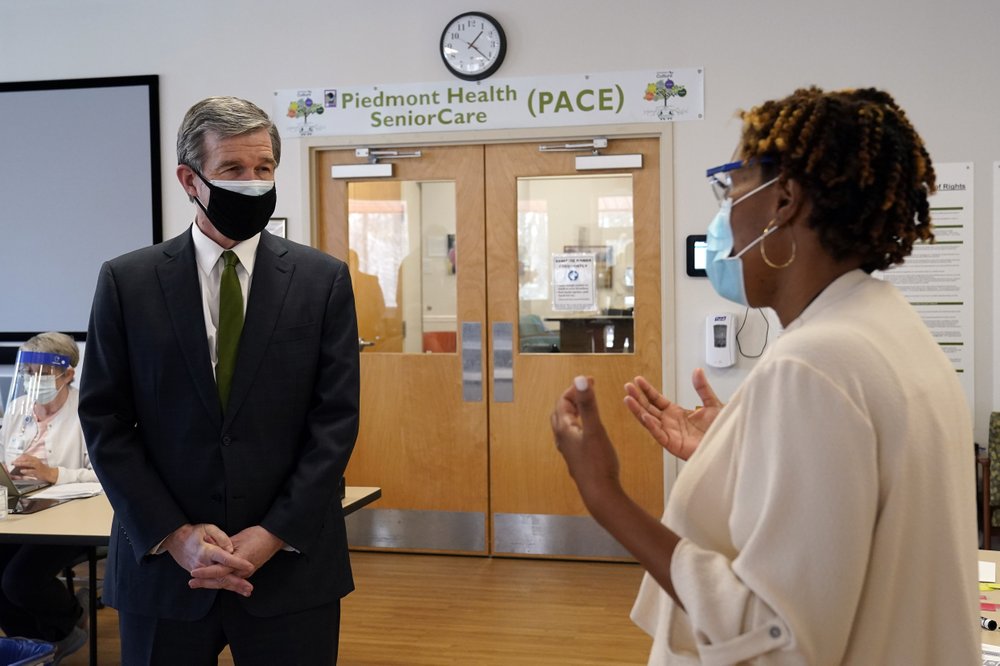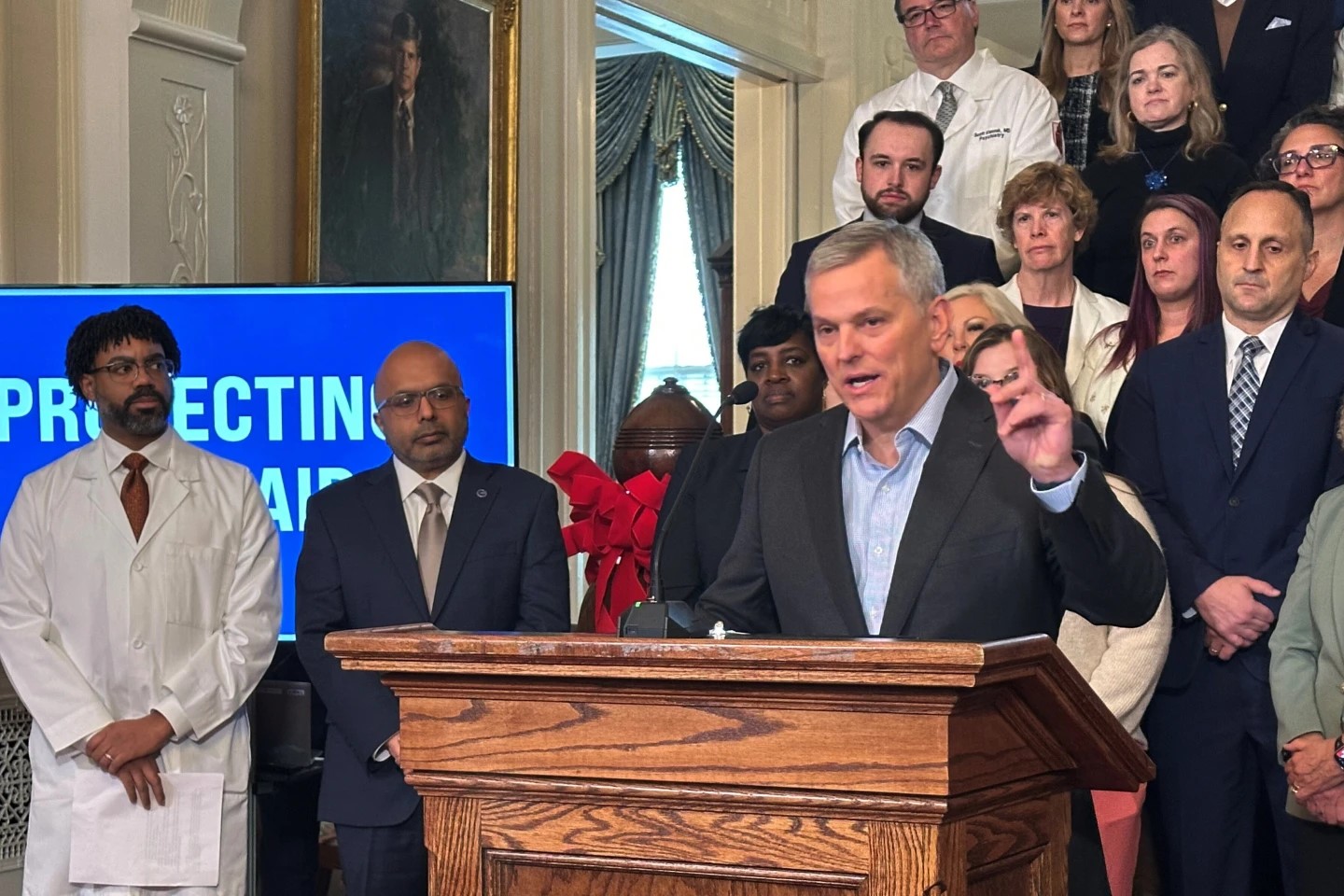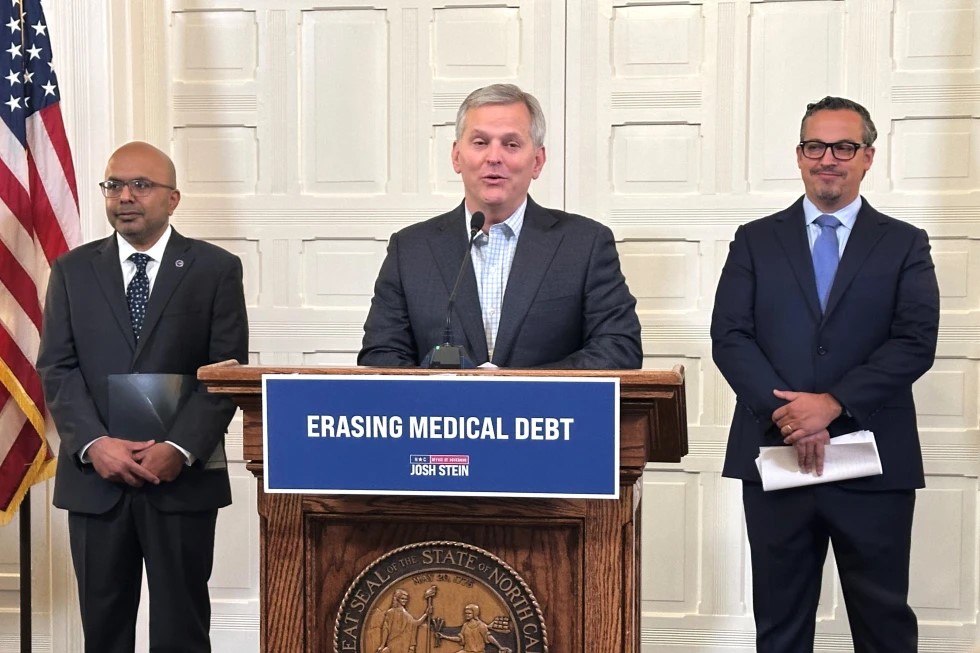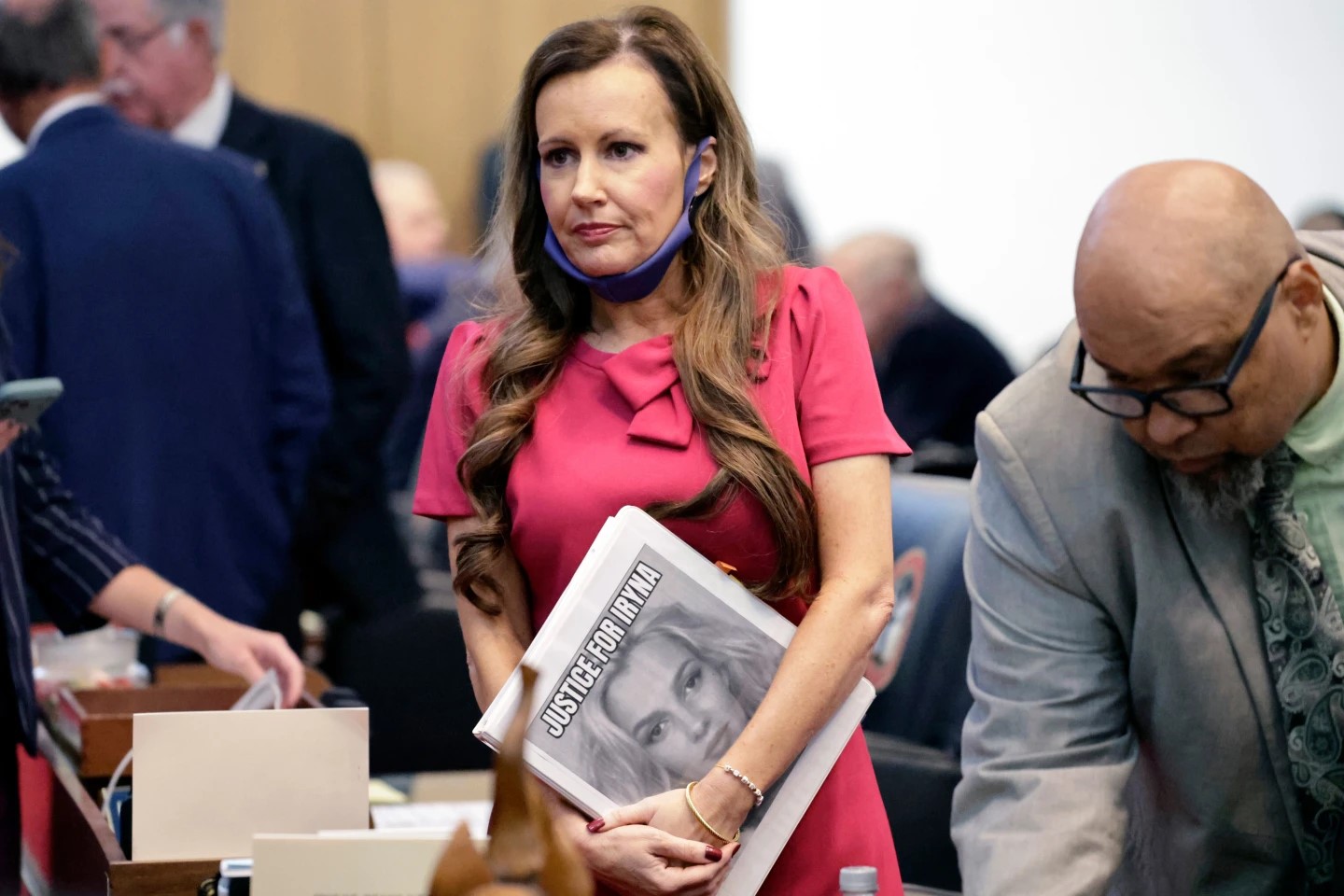The North Carolina General Assembly’s two chambers will convene for a session for the first time in nearly a month on Monday. Ahead of that, N.C. District 23 Sen. Graig Meyer — who represents Orange County — joined 97.9 The Hill’s Aaron Keck to discuss several topics on his mind as he returns to the legislature. Ranging from the ongoing need for a new state budget to better definite agritourism amid controversial discussions in rural Chapel Hill, the Democratic lawmaker shared his policy approaches and thoughts while knowing he is operating with the minority party.
Below is a transcript of the Sep. 12 interview, which has been edited for brevity and clarity. Listen to the full conversation here.
Aaron Keck: What is happening and what is not happening at the General Assembly this month? Because I feel like “not happening” seems to be more pressing at this point.
Graig Meyer: There’s a lot more things not happening. The biggest thing that’s not happening is: there’s still no deal on a state budget. We did pass these continuation bills, so we don’t have a shutdown like the federal government has — but there’s a complete impasse between the Republicans in the House and the Republicans in the Senate. Republicans in the Senate are insisting on keeping in place planned tax cuts that would bring the income tax rate down below 2% eventually. And everyone knows that that just means we’re not gonna have enough revenue for a growing state. Including the House Republicans know that and they’re like, “We want to pause these tax cuts, we want to give teachers raises, do a few other things.” But neither side has been willing to bend, and so we don’t have a budget.
And that means no raises for state employees, no extension of many, many grants for nonprofits and local community groups that do good, no work on very important things to people — like Medicaid rebase, which means fully funding the state’s share of Medicaid. When that [pause] happens, healthcare providers are getting less money for providing the same amount of services. And when they’re getting less money from state-funded services like Medicaid, they have to shift their costs to the rest of us. So even if you have health insurance, you start to see your costs go up on healthcare even more. It comes at a price to all of us.
Keck: I had a conversation a couple days ago with some folks where we talked about the ripple effect of, in this case, donating to a charity. You give $50 to this organization and then that money gets spent, and the immediate purpose is served and it’s great. But then the ripple effects of that money getting spent eases other burdens as well. And it’s really fantastic to think about…but it’s also true the other way, right? The money that doesn’t get spent also has ripple effects.
Meyer: Yeah, that’s right. I mean, our healthcare system is basically a half-private, half-government health system, right? And the private is paid for by insurance companies. Most of us pay the insurance companies through our wages and the other part is paid for by the government. When the government has less money, the ripple effect goes across all the private parts of it. It hurts insurance companies — who we don’t necessarily have a lot of sympathy for cause we pay them and they don’t always pay us what we think we’re due. But it hurts all the providers. It hurts those of us that have to pay. In some cases, places where you really have a very fragile medical system, like rural counties that don’t have a lot of providers, it can literally be the difference between staying in business or going out of business. We’ve had a few rural hospitals close. The ripple effects, when you reach those outer limits, can actually seem like they have a lot bigger impact than the ripple effects in a community like Chapel Hill — where we’re very lucky to have many, many healthcare providers.
Keck: To what extent is this compounded by what’s happening in Washington D.C. in terms of general federal funding cuts?
Meyer: That’s a great question. Again, because we’re in this system where a good maybe half of it is paid for by government spending, more of that comes from the federal government than even from the state. And because the federal government now is on a track to decrease their spending on all forms of healthcare based on the Trump ‘Big Ugly Bill,’ it is going to shift cost to the state. Therefore, if the state is also cutting costs, then you’re right: it’s a compounding factor. Both the federal and the state government are going to hurt the entire rest of the system as they cut costs.
Keck: What is the effect of that on people in general on the ground, whether it’s patients or providers? Because I can see the argument for like, “Oh, let’s not have the government involved in doing this, we can maybe do it some better way, some other way.” But what is the effect of making that change?
Meyer: Here are a couple of examples. One: if you’re someone who buys your healthcare through what we call the Obamacare exchange…this year when you have to re-up, you are going to see that your cost for healthcare is going to skyrocket. That’s going be the first place where people will see a direct, major back-pocket impact. Another example would be services provided. When there’s not enough money in the system for, say, services for people with developmental disabilities that need daily support, then the organizations that run those services have to stretch them thinner. And that means people aren’t getting as much support. Maybe you’re getting a couple hours a day or maybe only a couple days a week rather than what you used to get. And those organizations often can’t pay their employees enough to keep them, and so then you have staffing shortages.
But that leads up to another piece, which is: the majority of money in the healthcare system goes to wages. It goes to paying people. And when there’s less money, you pay fewer people. So, now you have people who had been working in healthcare who are unemployed. All of those things have direct impacts on people, families, their lives, people that you love, somebody that you depend on for income, somebody that you depend on for medical care. The impacts are real.
Keck: You mentioned rural hospitals and rural healthcare or rural communities with healthcare systems that aren’t quite as robust as more central urban centers are gonna get hit proportionately harder by that. And those are the districts that are served primarily by Republican lawmakers. And we’ve had the same conversation about schools, right? The extent to which money gets funneled to private schools and organizations like that…those are not located in the rural districts, they’re located in the big urban centers. So, the rural districts are going to get hit harder by that as well. Is there a tipping-point threshold where this starts to affect rural communities enough that Republican lawmakers start turning around on this or not?
Meyer: You would think so, but I haven’t seen it in the 15 years that Republicans have been in charge of the General Assembly. You have not seen rural communities turn against them, even though those trends of cutting funding on schools and healthcare have been dominant. Now, what you did see was that the Republican General Assembly did eventually work with Governor Cooper to expand Medicaid — which was a response to the pressure of, “Hey, our communities aren’t getting the money we deserve. We’re not getting the healthcare. We deserve all of those things.” But they haven’t paid an election price for it.
Now this year, will they in some circumstances? There’s a few primaries of Republican legislators around the state, the most prominent being a primary of Phil Berger, the Senate President Pro Tem. In that case, healthcare spending isn’t the major issue, but it is one of the issues because the people there are like, “Hey, how come our hospital closed? If you’re so powerful, you’re the head of the Senate, why are we getting screwed? Why are we getting worse than the counties around us? Why do we have to drive to Guilford County, for instance, to get healthcare?”
Keck: Another issue where especially Republican-dominated districts are seeing a real tangible impact in terms of lack of state funding and lack of federal funding is in the ongoing recovery from Hurricane Helene — which is affecting Asheville and all of the counties around it. And there’s another issue where it’s now to the point where Ted Budd, of all the Republican senators, is blocking DHS nominees because the federal government is dragging its heels on getting that money down to the state.
Meyer: It might be the first time we’ve ever heard Ted Budd’s name in the news in the entire time he is been in the U.S. Senate, right? Because usually Ted Budd keeps his mouth closed and votes with Trump. So you never hear anything…he never makes any public statements, he doesn’t really do public appearances. Like you don’t even see him [in ways] like, “Ted Budd was at this thing in North Carolina.”
Keck: Which, poor Thom Tillis, because he gets all of the [reactions directed toward him] because of that.
Meyer: Correct. It seems that it’s a piece of Budd’s strategy — but he did, [last] week, stand up and say he is not gonna support some of Trump’s appointments until Trump releases the funding that he thinks we deserve for Hurricane Helene. Now, the FEMA challenges of not funding disaster recovery is probably most acute in the country on Hurricane Helene, but it’s happening all over. There’s many states where they haven’t gotten the funding released. And it’s related to why we haven’t gotten more support for Chantal here. There was never a federal disaster declaration on Chantal [until Sep. 12]. It’s not clear why that was true, but it’s clear that that type of thing is happening all across the country, that the Trump administration has just failed to do what we have considered to be standard disaster recovery work for decades.
And I do think that it’s going to be an election issue in the mountains where you do see bipartisan anger about it and a desire to have a change in Congress when they feel neglected. For instance, in that congressional race out there — I think it could make a difference that there hasn’t been enough done for Helene. I mean, I guess the president has a year to try to get some money out there before that election…but I’m glad that Republicans are speaking up on it, because it’s the right thing to do. You’ve got to take care of your people. And we’ve been trying to push for the federal funding here for Chantal, and it’s just, like, crickets from the federal government.
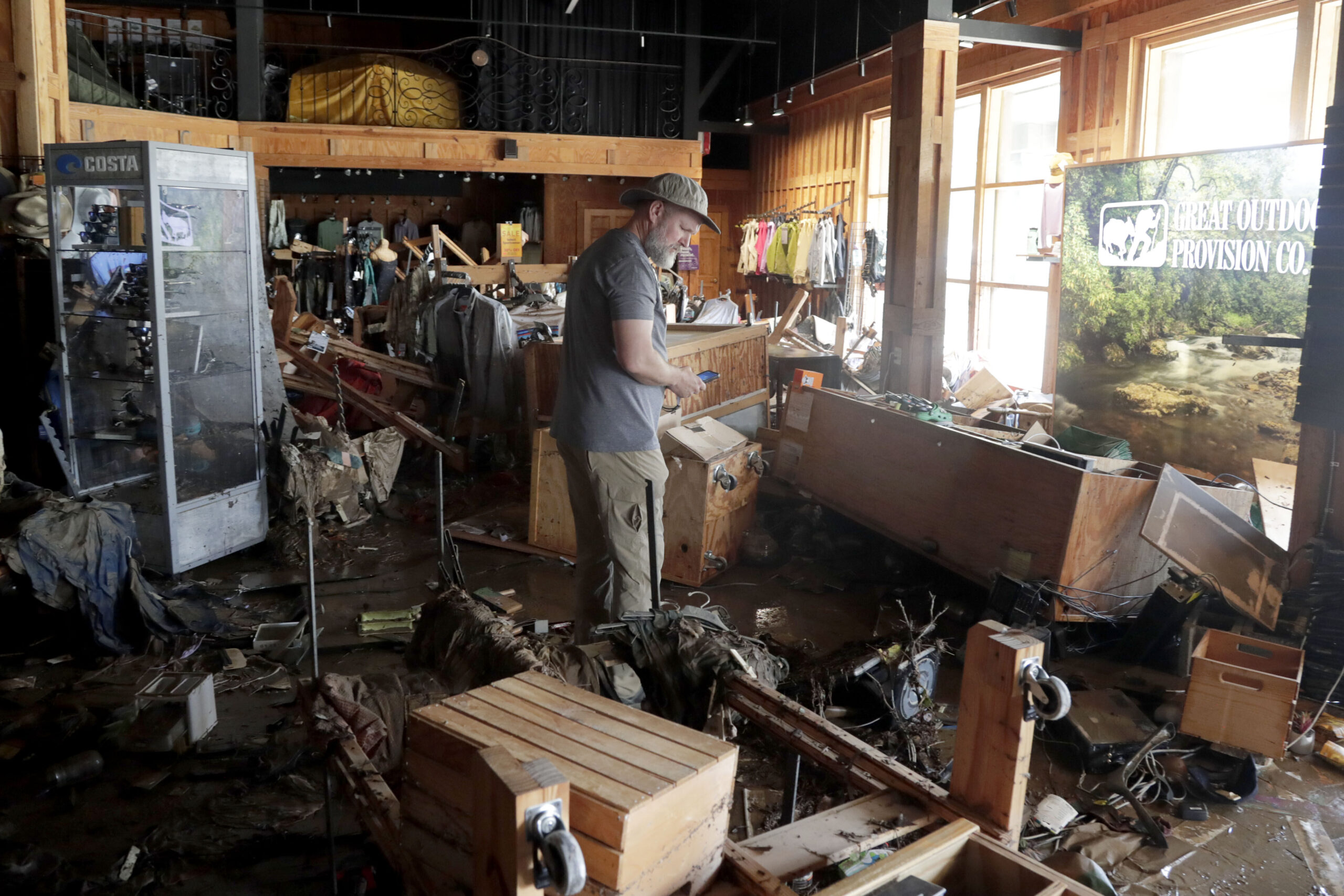
A Great Outdoor Provision Co. employee surveys the damage after the Eastgate Crossing store was flooded during tropical storm Chantal, Monday, July 7, 2025, in Chapel Hill, N.C. The state government and Small Business Administration opened up grants to business owners and individuals impacted by the floodwaters, but federal funding was slow to (Photo via AP Photo/Chris Seward.)
Keck: I can’t remember if it was someone in the Trump administration or if it was like Mike Johnson or someone who said earlier this week that, “Look, we think that this can be better handled at the state level if we just get the money to them.” It’s like, ‘Great, I agree with that. Get the money down.’
Meyer: Right! Send the money! I mean, there are situations where it’s better to have the federal government handle the money and there are situations where it’s better to have the state government. On disaster recovery, you generally want the money as close to the ground as possible so that it moves quickly and that it gets to where the real needs are. And if they would just send a big check to North Carolina, I know we’ve got plans to spend it.
Keck: What is the state response to our storm here in our community, Chantal?
Meyer: Well, I’m frustrated because it’s related to the budget impasse that we talked about at the top of the interview. Without having a budget, we don’t really have a bill that we could put some Chantal funding into. And so, it’s just stuck. It is possible that if you take some of the ongoing Helene needs, the Chantal needs, and if — let’s hope not — there was another natural disaster in the next couple months…I can see us doing another just disaster relief bill. But there hasn’t been talk about doing that just for Chantal, even though some of us have asked for it.
I’m just frustrated by it. To me, it is such a sign of the current dysfunction in Raleigh, which isn’t Democrat versus Republican dysfunction. I would name it if it was, but it’s Republican versus Republican. And in this case we even have a Republican senator, Amy Galey from Alamance County, who also wants Chantal funds. So, nobody’s getting help, no matter which party they’re from.
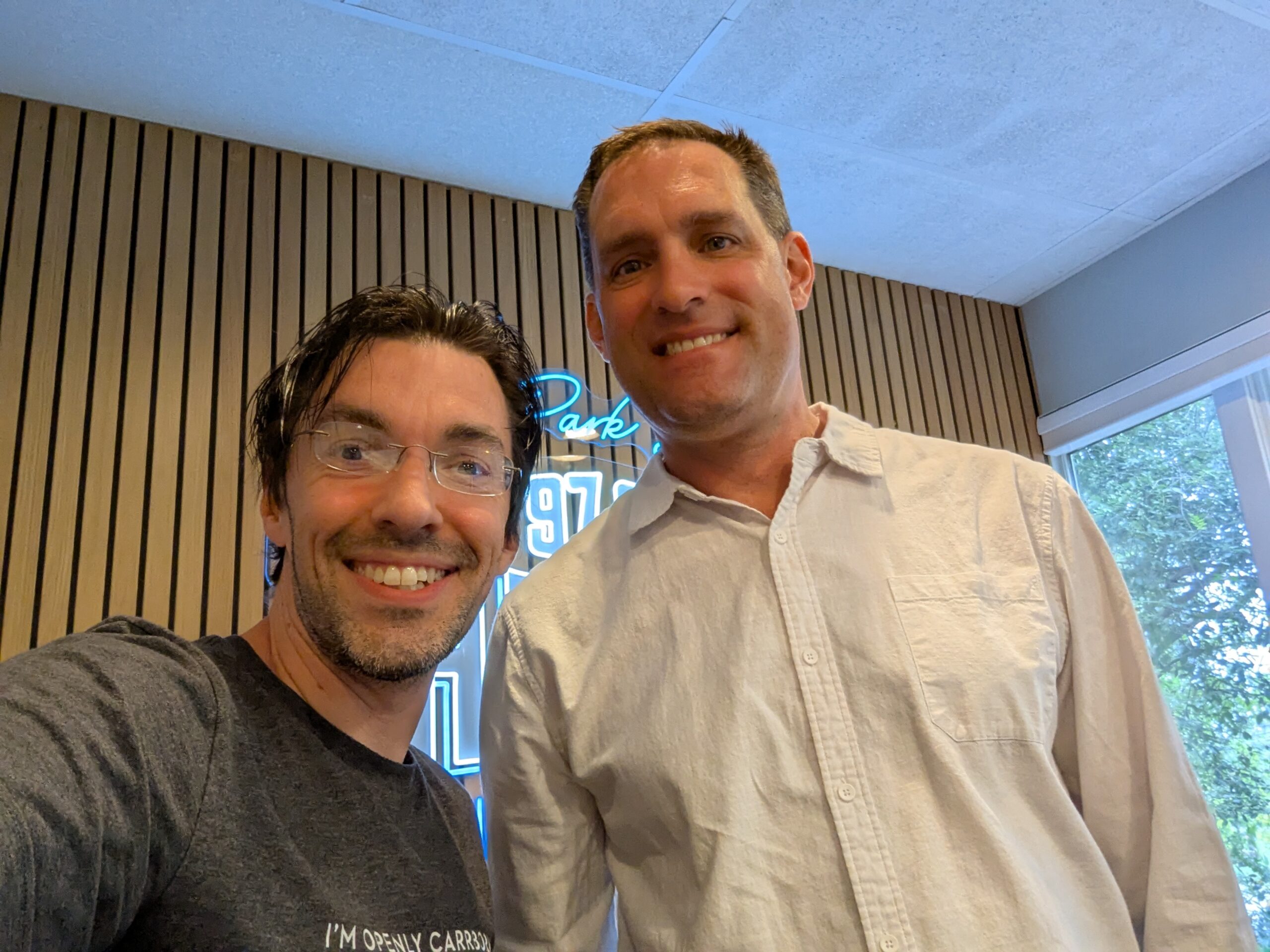
NC Sen. Graig Meyer visits the Chapel Hill Media Group studios for an interview with Aaron Keck. (Photo by Aaron Keck/Chapel Hill Media Group.)
Keck: What else is happening locally that you’re working on? We were talking before we started recording about agritourism.
Meyer: I’ve had a lot of conversations with people in Orange County about agritourism this year. There are certainly, and you’ve reported on, there’s people who are concerned about the agritourism proposal at Union Grove Farms. Is it legitimate agritourism to put things onto a farm like a hotel or a music amphitheater? How does that actually reflect the intent of the agritourism law? And in general, we do want farmers to be able to use their land, their property, their farming, to be able to make revenue in lots of ways besides selling their crops or whatever it is they produce. So we do want them to be able to host events, etc. There are lots of great examples of agritourism that are very good and enjoyable for the Orange County community. But I think there are also things that probably the drafters of the law originally didn’t see coming. Building a giant amphitheater is probably one of them.
Another example that we have in Orange County is, should you be able to use the agritourism law to put daycares onto a farm? And with both the amphitheater and the daycare, there’s an issue where the agritourism law provides an exemption from a whole set of other regulations, including fire code. And so, do we want to allow farms to have unsafe public facilities like a daycare or an amphitheater just because they’re farms? I would say no. I think there are certain situations where you have to make sure that at least the safety and the health requirements that you would have at another commercial facility are still in place at an agritourism facility.
The person who is the drafter of the agritourism law, Sen. Brent Jackson from Duplin County, has traditionally opposed all of my efforts to put some restrictions on the agritourism law. But this year, we’ve been working together because he’s seen some of the examples here in Orange County specifically and some other places. I said, “Senator Jackson, do you think that a daycare center should qualify for agritourism?” And he laughed and he shook his head, and he said, “I certainly never imagined that when we drafted the law.” So, we’re trying to figure out: are there any additional lines we can draw on the law that protect health and safety, protect the local community?
Another issue that came up in Orange County related to that is people throwing these giant farm parties that have a lot of alcohol, some spillover effect into the community of cars and dangerous driving, etc. So we’re trying to figure all of that out, and I do hope that in next year’s legislative session we’ll be able to put some additional limits on that law and provide some more guidance to counties on how they can regulate it.

Union Grove Farm is aiming to add a music stage to its offerings in rural Chapel Hill. The business’ owners have already earned approval to add a distillery and a three-acre culinary farm highlighting its method regenerative farming, but the stage was initially denied by the Orange County government and is the subject of a lawsuit by the Triangle Land Conservancy. (Photo via Meredith Saybe/Union Grove Farm.)
Keck: As we wrap up this conversation: one thing that you wrote recently on Facebook that I want to end with, and you always have great messages on social media about what people can do if they wanna speak out, act up, get out there, and try to move the down in a positive direction. And you wrote recently about the importance of losing loudly. Which is I think a really, really important point because you were talking about the Texas lawmakers who were going up to D.C. and making a big stink about redistricting, but then came back and then the vote happened. And I think I certainly had the reaction of, “Oh, well what the hell was the point of that?” Like, it was two weeks. You made a good point about this.
Meyer: We’re just in a position where — as Democrats or as a resistance movement — we don’t have access to a lot of power. So, you have to build towards power by doing certain things. You have to look at [things like] where are the times where we’re going to get power? There are election chances like next year’s midterms, and there are community chances, like types of protests and things you can do. But in order to build enough momentum to get that power, you have to build a popular movement, and you’re gonna lose along the way cause the other side has more power.
So, the important thing is: you fight as hard as you can and as loudly as you can. Because there’s no point in losing quietly…then, you just got whacked. But if you can make your point in a way that draws more people to you, even in the process of losing, then you’re building a movement. And that’s what I’m calling on many people to do, including my fellow Democrats. People want to see Democrats stand for something, fight, do something. And I think a lot of times people are paralyzed by, “Oh, well that won’t make a difference.” It will make a difference if you’re loud enough, even if you don’t accomplish it. It’s kind of similar to what I’ve told many candidates who are gonna run for election in places where they almost certainly know they’re gonna lose. What are your other goals for running besides winning? Can you build an issue in the community that people will support? Can you get your opponent to commit to something that they otherwise might not have because you put so much pressure on them? There’s a lot of ways to lose and still come out farther ahead than where you are right now.
Chapelboro.com does not charge subscription fees, and you can directly support our efforts in local journalism here. Want more of what you see on Chapelboro? Let us bring free local news and community information to you by signing up for our newsletter.

